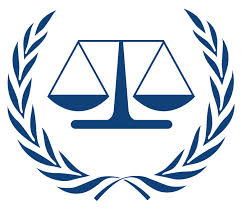Article 38 of the Statute of the International Court of Justice:
International courts are formed by treaties between nations, or under the authority of an international organization such as the United Nations — this includes ad hoc tribunals and permanent institutions, but excludes any courts arising purely under national authority.
1. The Court, whose function is to decide in accordance with international law such disputes as are submitted to it, shall apply:
a. international conventions, whether general or particular, establishing rules expressly recognized by the contesting states;
b. international custom, as evidence of a general practice accepted as law;
c. the general principles of law recognized by civilized nations;
d. subject to the provisions of Article 59, judicial decisions and the teachings of the most highly qualified publicists of the various nations, as subsidiary means for the determination of rules of law.
2. This provision shall not prejudice the power of the Court to decide a case ex aequo et bono, if the parties agree thereto.
Article 38 of Statute of the Permanent Court of International Justice
The Court shall apply:
1. International conventions, whether general or particular, establishing rules expressly recognized by the contesting States;
2. International custom, as evidence of a general practice accepted as law;
3. The general principles of law recognized by civilized nations;
4. Subject to the provisions of Article 59, judicial decisions and the teachings of the most highly qualified publicists of the various nations, as subsidiary means for the determination of rules of law. This provision shall not prejudice the power of the Court to decide a case ex aequo et bono, if the parties agree thereto.
Extracts:
‘It is … a principle generally accepted in the jurisprudence of international arbitration, as well as by municipal courts, that one Party cannot avail himself of the fact that the other has not fulfilled some obligation or has not had recourse to some means of redress, if the former Party has, by some illegal act, prevented the latter from fulfilling the obligation in question, or from having recourse to the tribunal which would have been open, to him.’ ( Case concerning the Factory at Chorzów [Germany v Poland] [Claim for Indemnity] [Jurisdiction] 31; see also → German Interests in Polish Upper Silesia, Cases concerning the.)
‘By reason of the exclusive territorial control of a State within its frontiers the other State, the victim of a breach of international law, is often unable to furnish direct proof of facts giving rise to responsibility. Such a State should be allowed a more liberal recourse to inferences of fact and circumstantial evidence. This indirect evidence is admitted in all systems of law and its use is recognized by international decisions.’( The Corfu Channel Case [United Kingdom of Great Britain and [Northern Ireland v Albania] [Merits] [‘Corfu Channel Case’] 18.)
The ICJ noted that the United Nations Administrative Tribunal was ‘an independent and truly judicial body pronouncing final judgments without appeal within the limited field of its functions’ and said: ‘According to a well-established and generally recognized principle of law, a judgment rendered by such a judicial body is res judicata and has binding force between the parties to the dispute’ ( Effect of Awards
of Compensation Made by the United Nations Administrative Tribunal [Advisory Opinion] 53).
‘It is an established rule of law that the plea of error cannot be allowed as an element vitiating consent if the party advancing it contributed by its conduct to the error, or could have avoided it, or if the circumstances were such as to put that party on notice of a possible error.’ ( Case concerning the Temple of Preah Vihear [Cambodia v Thailand] [Merits] 26.)
a plea that the Court should allow the equivalent of an ‘actio popularis’, or right resident in any member of a community to take legal action in vindication of a public interest. But although a right of this kind may be known to certain municipal systems of law, it is not known to international law as it stands at present: nor is the Court able to regard it as imported by the ‘general principles of law’ referred to in Art. 38, paragraph 1 (c), of its Statute ( South West Africa Cases [Ethiopia v South Africa ; Liberia v South Africa] [Second Phase] para. 88; → South West Africa/Namibia [Advisory Opinions and Judgments]).
a plea that the Court should allow the equivalent of an ‘actio popularis’, or right resident in any member of a community to take legal action in vindication of a public interest. But although a right of this kind may be known to certain municipal systems of law, it is not known to international law as it stands at present: nor is the Court able to regard it as imported by the ‘general principles of law’ referred to in Art. 38, paragraph 1 (c), of its Statute ( South West Africa Cases [Ethiopia v South Africa ; Liberia v South Africa] [Second Phase] para. 88; → South West Africa/Namibia [Advisory Opinions and Judgments]).
Such obligations are based … on certain general and well-recognized principles, namely: elementary considerations of humanity, even more exacting in peace than in war; the principle of the freedom of maritime communication; and every State’s obligation not to allow knowingly its territory to be used for acts contrary to the rights of other States. (Corfu Channel Case 22; → Humanity.)
















